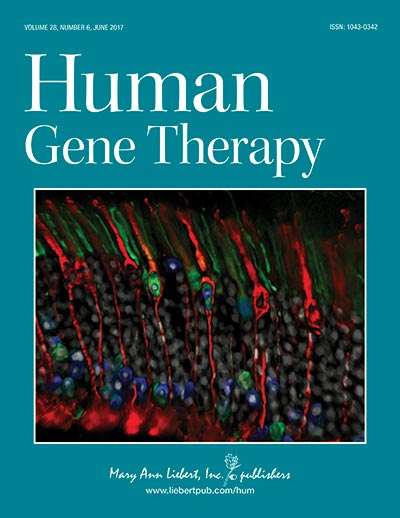Noninvasive intranasal method shows prevention of neurologic effect from metabolic disease

Researchers have successfully used a noninvasive intranasal approach to deliver the gene for the enzyme that is deficient in the inherited lysosomal storage disease mucopolysaccharidosis type 1 (MPS 1) to the brains of an MPS mouse model, and have demonstrated the presence of the therapeutic enzyme throughout the mouse brains. Five months later, the treated mice did not exhibit the learning and navigation deficiencies seen in untreated mice, as reported in an article published in Human Gene Therapy.
Lalitha Belur, PhD, University of Minnesota, MN and coauthors from University of Minnesota, Regions Hospital (St. Paul, MN), and REGENXBIO (Rockville, MD), evaluated the effectiveness of using an adeno-associated virus (AAV9) vector to deliver the gene for alpha-L-iduronidase (IDUA), which is deficient in people with the inherited metabolic disease MSP 1, across the blood-brain barrier using an intranasal delivery route.
The researchers demonstrated the feasibility of gene delivery to the central nervous system as well as the ability to correct the metabolic defect and prevent the neurologic dysfunction associated with MPS 1. They present the study design and results and discuss the implications of their findings in the article entitled "Intranasal AAV Mediated Gene Delivery and Expression of Human Iduronidase in the CNS: A Non-invasive and Effective Approach for Prevention of Neurologic Disease in Mucopolysaccharidosis Type 1."
"The unique anatomy of the olfactory system allows intranasal AAV vectors to circumvent rather than having to penetrate the blood-brain-barrier," says Editor-in-Chief Terence R. Flotte, MD, Celia and Isaac Haidak Professor of Medical Education and Dean, Provost, and Executive Deputy Chancellor, University of Massachusetts Medical School, Worcester, MA. "If this mechanism can be exploited in humans as well, it could represent the key to treating numerous other genetic disorders affecting the brain."
Research reported in this publication was supported by the National Institutes of Health under Award Number NS062158. The content is solely the responsibility of the authors and does not necessarily represent the official views of the National Institutes of Health.
More information: Lalitha R. Belur et al, Intranasal Adeno-Associated Virus Mediated Gene Delivery and Expression of Human Iduronidase in the Central Nervous System: A Noninvasive and Effective Approach for Prevention of Neurologic Disease in Mucopolysaccharidosis Type I, Human Gene Therapy (2017). DOI: 10.1089/hum.2017.187



















